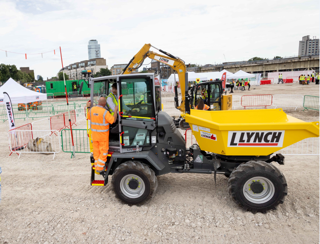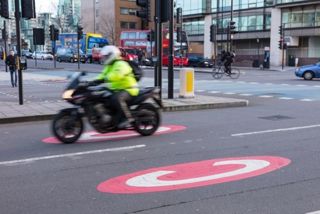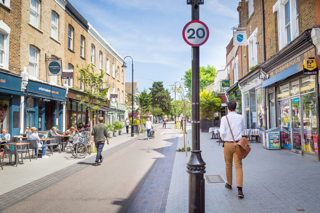The world’s first ultra-low emission zone (ULEZ) is on track to be introduced in London from September 7, 2020.
London mayor Boris Johnson will make a final decision on the scheme in the spring with fleets then having a five-year window in which to ensure cars and light commercial vehicles meet air quality standards and avoid paying to enter the ULEZ charge, which is expected to mirror the existing London congestion charge zone in terms of geography.
Transport for London (TfL) is analysing the results of its recently concluded public consultation on the scheme and will then make recommendations to the mayor.
He will then make a decision on whether to confirm the scheme order, with or without modifications to that outlined in the consultation document. If introduced, the ULEZ will operate 24/7, 365 days a year.
TfL says that in giving businesses and public sector organisations five years’ notification of introduction of the ULEZ it anticipates that “many vehicles will already be compliant”, with fleets having gone through replacement programmes.
It is proposed that ULEZ standards for cars, small and large vans and minibuses will adhere to Euro4 emissions standards for petrol-engined models, which have been on sale for many years, and Euro6 for diesel.
All new cars registered from September 1, 2015 must meet the Euro6 standard with all new light commercial vehicle registrations required to from September 1, 2016. However, a number of manufacturers already have Euro6 compliant vehicles on sale.
A vehicle that does not meet the ULEZ standard will be able to enter the zone but a proposed daily charge of £12.50 will apply.
Compliance will be enforced using the existing Automatic Number Plate Recognition cameras – both fixed and mobile – already installed within the ULEZ area, which are also used for congestion charge enforcement.
Failure to pay will result in registered keepers being issued with a penalty charge notice for light vehicles of £130 (reduced to £65 if paid within 14 days).
Concern at the ‘dieselisation’ of the UK car parc – to which massive growth in corporate use of diesel engined company cars and vans has contributed – is a major factor in the creation of the ULEZ.
Diesel vehicles’ major pollutant is mono-nitrogen oxides (NOx), which is claimed to be a significant contributor to poor air quality. But Society of Motor Manufacturers & Traders (SMMT) chief executive Mike Hawes said today’s models are “light years away from those built just a decade ago”.
Rather than the perceived anti-diesel approach, the SMMT argues that the Euro6 emission standard should be adopted for both petrol and diesel cars and vans, thus removing “any confusion, strengthen the uptake of cleaner technology and bring air quality benefits sooner”.
He points out that, by 2020, petrol vehicles up to 14 years old would be allowed into the ULEZ without penalty, but Euro6 petrol vehicles were on sale now and will be mandatory from next year.
While Euro4 and Euro6 are the proposed emission standards, according to vehicle fuel type, TfL says it is possible that a strengthening of the ULEZ standards could be proposed at a later date.
Indeed, the Mayor is considering the introduction of a tighter ‘zero emission capable’ standard from 2025. However, TfL has made clear that any such change would be subject to another public consultation, availability of vehicles on the market and air quality impacts.
The British Vehicle Rental and Leasing Association (BVRLA) said that in previous discussions with TfL a ‘near-zero’ future emissions standard had been suggested.
The BVRLA has proposed a minimum five-year period from the ULEZ being in place before any additional standard is imposed.
TfL said it was too early to comment on whether or not it would recommend modifications to the proposed ULEZ as a result of the consultation process.
There have also been calls for the ULEZ to be extended outside of the capital’s centre.
The TfL spokesman said: “Any proposals to expand the currently proposed ULEZ would need to be subject to a separate public and stakeholder consultation and cannot be accommodated in the current exercise.”
In addition to the proposed London ULEZ there are five LEZs currently in operation throughout England, and 15 local authorities across England have been allocated government funding to develop similar zones.


















Login to comment
Comments
No comments have been made yet.